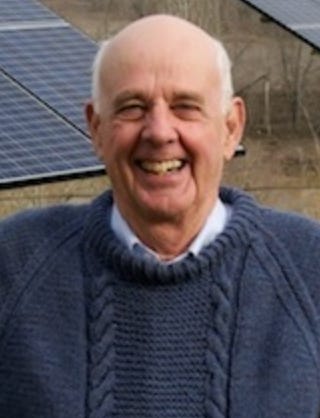John Stone, “Walking the Dog on the Night before He Is to Be Fixed” from Where Water Begins. © Louisiana State University Press, 1998.
ORIGINAL TEXT AND AUDIO - 2017
On this day in 1850, Herman Melville and Nathaniel Hawthorne met at a picnic with friends at Monument Mountain near Stockbridge, Massachusetts. Two days later, Melville visited Hawthorne at his little red farmhouse in Lenox. Hawthorne gave him two bottles of champagne and they took a walk to the lake. That same day, Hawthorne wrote to a friend, "I met Melville, the other day, and liked him so much that I have asked him to spend a few days with me before leaving these parts." For a year and a half, the two friends lived six miles apart during the most productive time in their writing lives. Their five greatest books — The Scarlet Letter, The House of the Seven Gables, Moby-Dick, The Blithedale Romance, and Pierre — were either being written or published. In fact, The Blithedale Romance and Pierre were written at the same time, and The Scarlet Letter and Moby-Dick were published only a year apart. In the fall of 1851, Melville dedicated Moby-Dick to Hawthorne.
Today is the birthday of Wendell Berry, born near Port Royal, in Henry County, Kentucky (1934). His family — on both sides — have farmed tobacco in Henry County for at least five generations. His father had a law degree, and his brother was a lawyer, but Berry knew his brain didn't work that way. He went to the University of Kentucky and then received a prestigious Wallace Stegner Fellowship to study creative writing at Stanford, mentored by Stegner himself. He missed the farm, but figured it was not in the cards for him. "My education had implied, over and again, that you couldn't amount to anything in a place like this," he said. "I grieved over that. I liked the work of the farms. [...] But, at Stanford, I thought I was at the commencement of some kind of an academic vagabondage that would carry me I didn't know where." It carried him to Italy and to New York, and then one day he was offered a teaching job at the University of Kentucky. He took it, even though all his friends thought he was crazy to leave New York.
His first novel, Nathan Coulter (1960), was set in Port William, a fictional version of Port Royal. Over the years, he continued to write about Port William, using the same characters, re-creating the voices of the people around him. He said: "I have made the imagined town of Port William, its neighborhood and membership, in an attempt to honor the actual place where I have lived. By means of the imagined place, over the last fifty years, I have learned to see my native landscape and neighborhood as a place unique in the world, a work of God, possessed of an inherent sanctity that mocks any human valuation that can be put upon it."
In 1965, Berry became the sixth generation to farm in Henry County. He bought a farm called Lane's Landing, and raised sheep, and grew hay and corn. When he became a farmer, his writing took a backseat. "I've known writers — I think it's true also of other artists — who thought that you had to put your art before everything," he said. "But if you have a marriage and a family and a farm, you're just going to find that you can't always put your art first, and moreover that you shouldn't. There are a number of things more important than your art. It's wrong to favor it over your family, or over your place, or over your animals."
Berry considers himself a Christian, and criticizes the Christians who fail to take climate change and the environment seriously. He's an activist for (and against) many other issues, too, including the death penalty, nuclear power plants, the coal industry, the war in Vietnam, sustainable agriculture, and dependence on fossil fuels. In 1973, he began corresponding with poet Gary Snyder. In many ways, they were opposites: Snyder lived in California, Berry in Kentucky; Snyder was a practicing Buddhist, Berry a Christian. They didn't always agree. Berry worried about fighting evil: "You can struggle, embattle yourself, resist evil until you become evil [...] And I see with considerable sorrow that I am not going to get done fighting and live at peace in anything like the simple way I thought I would." Snyder didn't believe in the concept of evil the way that Berry envisioned it, and told Berry he was fighting "ignorance, stupidity, narrow views [and] simple-minded egotism." But over more than 40 years, they have exchanged almost 250 letters, on subjects ranging from writing to religion, from farming to philosophy. Their letters are collected in Distant Neighbors (2014).
It's the birthday of Guy de Maupassant, born in Normandy (1850), one of the great French short-story writers. He became an apprentice to Gustave Flaubert, who used to invite him to lunch on Sundays, lecture him on prose style, and correct his early work. Flaubert also introduced him to some of the leading writers of the time, like Émile Zola, Ivan Turgenev, and Henry James. Flaubert said, "He's my disciple and I love him like a son." Maupassant began publishing his first stories a few weeks before Flaubert's death. In just 10 years, between 1880 and 1890, he wrote most of the work for which he is remembered, including 300 stories and five novels.
Be well, do good work, and keep in touch.®
A Prairie Home Companion Scroll T-shirt






I especially liked learning about Wendell Berry in this essay. Thank you.